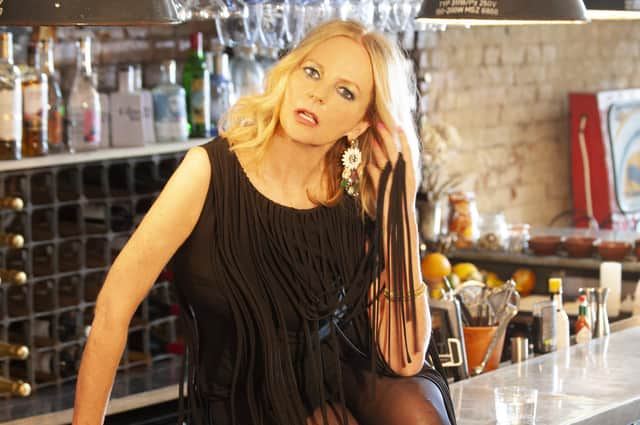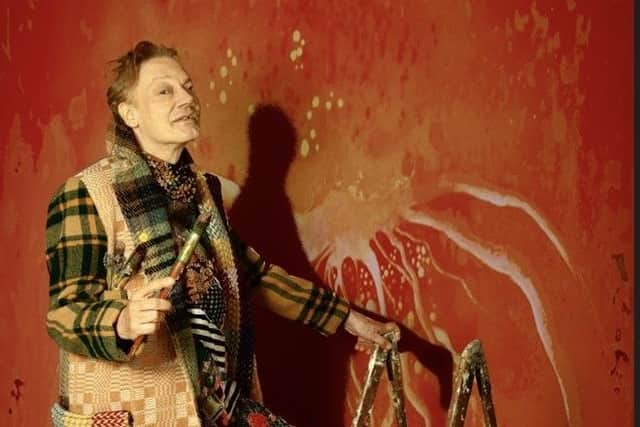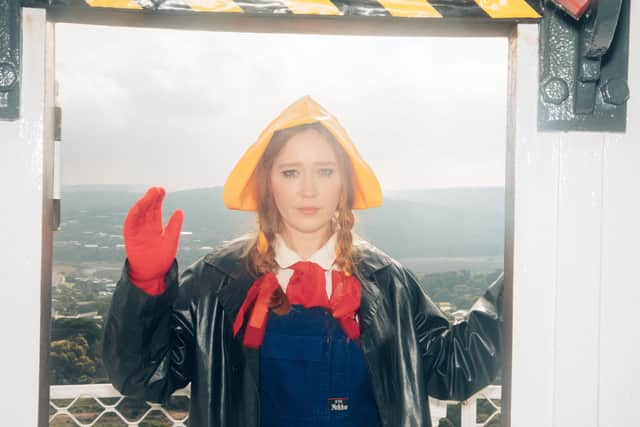Album reviews: Altered Images | William Orbit | Ezra Furman | Julia Jacklin


Altered Images: Mascara Streakz (Cooking Vinyl) ****
William Orbit: The Painter (Warner Records) ***
Ezra Furman: All Of Us Flames (Bella Union) ****
Julia Jacklin: Pre Pleasure (Transgressive Records) ****
Back in the early Eighties, Altered Images led the Scotpop charge on to Top of the Pops and beyond, with charismatic frontwoman Clare Grogan as the poster girl for the Sound of Young Scotland. Unlike some of the bands who came in their wake, from Texas to Del Amitri, the original line-up were unable to stay the course but left behind some of the most engaging songs in the canon.
Thirty years later Grogan reformed Altered Images with an all female line-up as a going live concern, but it took the second national lockdown for the seeds of a new album, the first in almost 40 years, to sprout as Grogan and husband Stephen Lironi (an alumnus of AI circa 1982) commenced writing together and with friends, neighbours and associates including Bernard Butler and Robert Hodgens, aka Bobby Bluebell.
Advertisement
Hide AdAdvertisement
Hide AdThe result is a sparkling set of tunes with a playful attitude and a seam of melancholy. As its title suggests, Mascara Streakz is a party album with its heart in Studio 54. Chic and Blondie are clear touchstones as is Kylie’s homage to (lip)glossy disco glamour. She certainly wouldn’t kick the classy Roxyesque electro pop odyssey Colour of My Dreams out of the VIP room, but Grogan and Lironi also infuse the likes of Home with that Eighties Scotpop strut as much as a twist of disco.


Beautiful Thing, co-written with Hodgens, is built on familiar guitar jangle and drum shuffle, but a quasi-gospel backing chorus takes the song out on an exultant high. Changing My Luck teams skinny Chic funk, twinkling Kraftwerk synths and an R&B chant of a hookline while the full-on disco funk of Double Reflection is an opportunity to dance yourself dizzy to an 808 drum machine.
Among the more reflective moments are the yearning rock waltz Your Life Is Mine and luscious lullaby Sleep, with its disco strings and trip-hop textures bringing this sleek, smart, stylish pop collection to a close.
Respected electronic composer and producer William Orbit has helped shape the careers of U2, Madonna… and Harry Enfield, but has swapped music for painting of late – hence the title of his first album in over eight years, following a hiatus scarred with substance abuse and ill health.
The Painter is a gentle catharsis, a suite of flowing electronic ambience punctuated by beatific vocal cameos from previous charges Katie Melua and Beth Orton and new muses including multi-instrumentalist Georgia, Columbian singer/songwriter Lido Pimienta, Ghanian-American producer Gloria Kaba and singer Polly Scattergood who helms the breathy reverie of Colours Colliding. However, it is the sampled vocals of Tanzanian singer Hukwe Zawose on the ambient Afrobeat track Heshima kwa Hukwe which have the most hypnotic effect.


Scrappy indie rock charmer Ezra Furman completes a loose trilogy of philosophical rock’n’roll albums with All Of Us Flames, combining her trademark clash of lyrical neurosis and freewheeling musical spirit to manifest the party at the end of civilisation. The swooning indie doo-wop of Dressed In Black is delivered with rock’n’roll rawness, religious imagery infuses the clattering roots rock of Book Of Our Names (Furman started then paused rabbinical training) while Forever in Sunset is pure entertaining melodrama with an indie Springsteen flourish.
Australian singer/songwriter Julia Jacklin kicks up her heels briefly on her new album but Pre Pleasure is mostly meditative in mood. She laments a distant relationship with her mother on Less of a Stranger, and digs up a childhood memory of performing in Jesus Christ Superstar for the witty but wistful Lydia Wears A Cross, conveying a front porch intimacy in the same ballpark as Adrienne Lenker of Big Thief, at times touched with the vulnerability of a Velvet Underground ballad.
CLASSICAL
Alison Balsom: Quiet City (Warner Classics) *****
Advertisement
Hide AdAdvertisement
Hide AdFor the first release in her new five-album contract with Warner Classics, trumpeter Alison Balsom finds inspiration in a programme of almost exclusively 20th century American music that either features the trumpet or is arranged for it. She opens with Aaron Copland’s Quiet City, its plaintive solo strains sumptuously echoed by the supporting Britten Sinfonia under Scott Stroman. The mood lingers via lowish-key Bernstein to a sudden awakening by Gershwin’s racy Rhapsody in Blue in a suave arrangement by Simon Wright. Ives’ timeless, mystical Unanswered Question provides the bridge to Gil Evans’ smoky reimagining (for Miles Davis) of Rodrigo’s Adagio from his Concerto de Aranjeuz. Balsom ends with more Evans magic, a dreamy, thick-scented take on Kurt Weill’s My Ship. Listen out for guest appearances by Nicholas Daniel on cor anglais (Quiet City) and pianist Tom Poster (Rhapsody in Blue). Fascinated to see where this series goes next. Ken Walton
FOLK
Fara: Energy Islands (Fara Music) *****
Their native Orkney’s importance as a centre for renewable energy development inspired this new album from the quartet Fara. But never mind wind or wave power; fiddlers Jeana Leslie, Catriona Price and Kristan Harvey and pianist Rory Matheson generate a potent energy all of their own. The album beguiles right from the pizzicato strings and dancing piano that herald the first track, Solar, before full fiddle force is unleashed. Wind Dancers, inspired by a George Mackay Brown poem, opens almost like a movement from Vivaldi, with stealthy fiddle strokes behind beautiful solo playing, while Harvey’s poignant air, The Hampshire, marks the centenary of that vessel’s sinking in 1916. There are some fine songs, too, with a joyful urgency to Leslie’s composition Fair Winds, the band joined by guest fiddler Seonaid Aitken, and a fine, piano invoked shimmer around Merry Dancers, adapted from a Lucy Dougall poem. Jim Gilchrist